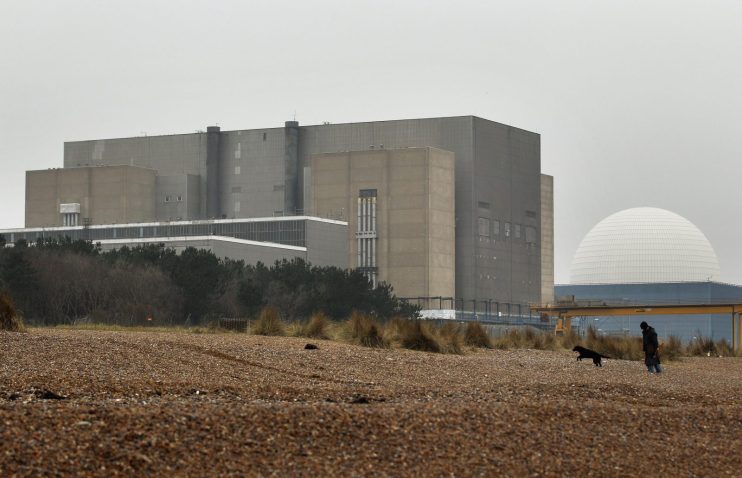New nuclear power plant backed by Truss and Macron at European summit

The UK’s next proposed nuclear plant has received the joint backing of both Prime Minister Liz Truss and French President Emmanuel Macron.
The two leaders issued a joint statement in which they said they were keen to advance cooperation, on energy in particular.
This included a pledge of “full support” for Sizewell C on Suffolk’s coast, which will be developed by French energy company EDF.
They expected the “relevant bodies to finalise arrangements in the coming month”.
Truss and Macron were meeting at the first summit of the European Political Community in Prague, a new political forum where further cooperation between the two countries.
The statement issued by the Prime Minister’s office confirmed that the “energy transition and decoupling from Russian hydro-carbons are common challenges”.
It said: “They reaffirmed their belief that both renewable and nuclear energies are part of consistent strategies to achieve energy transition and strategic autonomy.”
Truss further tweeted both countries were keen to end dependence on Russian energy.
The co-operation between two countries follows continued disagreements between the UK and France over policy issues and political developments since Brexit.
This has included the Northern Ireland protocol, fishing rights, Astra Zeneca vaccines, and the AUKUS submarine deal.
Tom Greatrex, Chief Executive of the Nuclear Industry Association, said: “Sizewell C will be one of the UK’s most important green infrastructure projects ever, and critical to the government’s plan to strengthen energy security, cut gas use and bring down bills, so this joint statement is very welcome.”
Nuclear option: Sizewell C inches towards approval
Earlier this year, former Business Secretary unveiled the UK’s supply security strategy, which included a pledge to boost nuclear energy generation from 7GW to 24GW over the next three decades.
He also announced Great British Nuclear, a state-backed vehicle which will help push projects through the development pipeline.
This includes eight sites already selected for development as part of Downing Street’s push to get eight reactors approved by the end of the decade.
Since then, former Prime Minister Boris Johnson pledged £700m for a new power plant, with a call to “go nuclear and go large and go with Sizewell C”.
The Government has also given the go-ahead for Sizewell C – against the advice of the Planning Inspectorate.
Negotiations on raising funds are ongoing, with estimates for its overall cost varying from £20-35bn, with a ‘Financial Investment Decision’ expected in 2023.
It has been selected as a candidate for funding under the regulated asset base model, with taxpayers taking on the initial costs of construction, to incentivise private backing once the project is underway.
This model has already been used to begin construction on the Thames Tideway Tunnel.
If funding is secured, it would be built next to the existing Sizewell B, which is still generating electricity, and Sizewell A, which has been decommissioned.
Its design is identical to Hinkley Point C – which is expected to be completed in 2027.
The Sizewell C project is expected to generate 3.2GW of electricity, powering six million homes and meeting around seven per cent of the UK’s electricity needs.
EDF hopes the plant will begin generating electricity in the 2030s and last for at least six decades.
City A.M. covered the proposed construction of Sizewell C earlier this year, where the plant’s head of financing Julia Pyke argued the long-term dividends such as supply security overpowered issues such as costs and disruption.
She said: “To me this is a bit like: Was the 1858 sewerage system late and over budget? Yes, it was. Do you wish London didn’t have a sewage system? No, you don’t. Was the London Underground in Victorian era built late and over budget? Yes, it was. Do you wish you didn’t have the Circle Line? No, you don’t. So, there’s a lack of proportionality in the way that people look at the cost of these mega projects.”